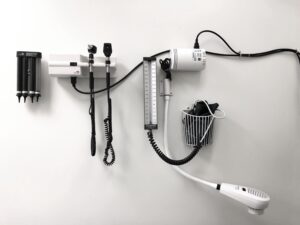A Practitioner’s Guide to Substance Abuse Confidentiality Regulations
Physicians and drug and alcohol treatment facilities have the duty to keep their client’s information confidential and protected. The Code of Federal Regulation (CFR) Title 42 Part 2 (United States Code Section 290dd-2(g)) is set in place to protect public health by employing regulations for medical professionals working with addicts.
It was first created in 1975 with the intent to protect information regarding addict patients in federal Part 2 programs by restricting the disclosure of healthcare information in non-treatment-based settings including administrative and domestic or criminal hearings.
Ideally, preventing addiction and recovery documentation disclosure protects patients from:
● Loss of employment
● Loss of housing
● Loss of access to Federal, State or Local courts
● Loss of access to social services or benefits
● Loss of child custody
● Arrest, prosecution, and incarceration
This is to encourage those with a substance addiction to get help without feeling hesitant due to fear of the treatment records being disclosed. Title CFR Part 2 seeks to diminish the stigmas that addicts may face from insurance and healthcare providers by placing harsher restrictions.
With various regulations in place, it is of the utmost importance that medical professionals understand what is expected of them. A healthcare attorney can work with your practice on compliance with substance abuse confidentiality regulations to ensure your patients and practice are protected.
HIPAA and CFR 42 Part 2
Title 42 CFR Part 2 is a separate regulation from HIPAA. However, both are followed by addiction and recovery facilities. The regulation with the strictest sanction will hold.
One major difference between the two regulations is that Title 42 CFR Part 2 requires patient consent for disclosure of treatment, payment, and healthcare operations with limited exceptions, while HIPAA permits the disclosure. For example, HIPAA would allow disclosure in cases of court-requested orders or subpoenas, but CFR would require a more specific court order in order to protect addicts.
State laws are also required to follow Title 42 Part 2, but may also employ additional confidentiality restrictions. It is advised that healthcare providers speak with an attorney on what regulations apply to their practice.
What Should I Include in a 42 CFR Part 2 Consent Form?
Part 2 specifies requirements to be included in patient consent forms:
- Patient name
- Name of organization disclosing the information
- Recipient name
- Specific and detailed purpose for disclosure (must pertain to the information being disclosed)
- Specific information being disclosed
- Patient acknowledgment and consent
a. Patient is entitled to revoke at any time in which the form must indicate the date of revocation - Date or condition in which consent expires
- Date of signing
- Patient signature
All nine elements outlined above must be present on a consent form for it to be valid. As mentioned previously, 42 CFR Part 2 is strict so without consent information can only be disclosed in a ‘’bona fide medical emergency.’
Substance Abuse Confidentiality Regulations Regarding Files
CFR 42 Part 2 specifies how a California substance abuse treatment facility or practitioner in a Part 2 program must secure their paper and electronic records. § 2.16 states that all programs must have secure “formal policies and procedures to reasonably protect against unauthorized uses and disclosures of patient identifying information and to protect against reasonably anticipated threats or hazards to the security of patient identifying information.”
Security for paper files must address:
- Transfer and removal
- Destruction including clearing the hard copy associated with the paper printouts
- Location such as a secure room, locked file cabinet, safe, other similar containers, or a storage facility
- Usage and access of said location
- Rendering information to be non-identifiable with a low risk of re-identification
Similarly, electronic files must have regulations in place including:
- How files are created, retrieved, maintained, and submitted
- The destruction of files including clearing the electronic media where they are stored
- How files are accessed and used
- How information is rendered to be non-identifiable with a low risk of re-identification
42 CFR Part 2 Changes
Like most acts, Title 42 is continuously monitored and updated to account for changes in public health and society at large. The most recent modifications occurred in 2020, amidst the pandemic, and touched on topics such as ensuring that Part 2 program employees’ personal devices will not be confiscated or destroyed to maintain compliance, clarifying what activities count as “payment and health care operations,” and more.
CFR 42 Part 2 changes reflect an unwavering commitment to protecting individuals struggling with substance abuse. Individuals working in a California substance abuse treatment facility or practice should remain up to date on Title 42 in order to abide by any policy changes.
Lawyers for Drug and Alcohol Treatment Facilities
Fenton Jurkowitz Law Group has over 30 years of experience representing addiction and recovery providers in transactional, litigation, regulatory defense, and compliance legal cases. Their team can provide guidance to practices on compliance issues regarding CFR Title 42 regulations, the scope of services requirements, risk management, and other regulations required of addiction facilities.
Running a California substance abuse treatment facility can be complex but legal issues don’t have to be. Contact us today to speak with an experienced healthcare attorney on any individual concerns pertaining to your addiction recovery practice.
